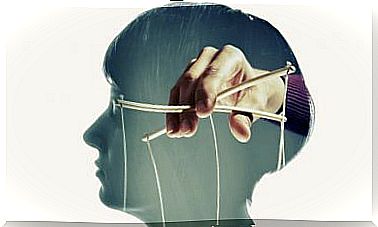4 Ways That Lack Of Assertiveness Affects Friendships

Social relationships are a source of pleasure, well-being and health. Friends are those people who know us, understand us and enrich our lives. Or, at least, this is what we all hope for. However, when either party fails to communicate effectively, the relationship can suffer and end up being damaging. Because of this, we want to show you some ways that lack of assertiveness affects friendship.
Assertiveness is the ability to communicate clearly and directly, showing respect for oneself as well as for the other interlocutor. It is a healthy middle ground between aggressive communication (dominant and based on satisfying one’s own needs) and passive communication (submissive and tending to prioritize the needs of others).
If either of these two extremes is present on a regular basis, the result is dissatisfaction and generally the appearance of conflicts. Thus, a friendship can be affected in various ways that we detail below.
Lack of assertiveness affects friendships in a number of ways

Abusive and unbalanced relationships
The basis of all friendship must be reciprocity and balance between the parties. Both people are to offer and receive in similar proportions. However, when one of them applies passive or aggressive communication, an imbalance occurs.
From that moment, the opinions, needs and preferences of one of the individuals prevail over those of the other. This situation not only damages the self-esteem and feelings of the passive person, but, in the long run, ends up deteriorating the bond and bringing it to an end, since it is not being a functional exchange.
Unresolved conflicts
Conflicts and discrepancies are present in any relationship, especially if it remains over time. It is precisely assertiveness that allows us to expose them, analyze them together with the other person and reach satisfactory agreements.
When this does not happen, the emotional discomfort is hidden and the problem remains unsolved, generating an internal load that increases over time. In this way, reproaches, recriminations or outbursts of anger are likely to arise in the future, since the dynamics of the bond have not changed.
Dissatisfaction
There is a long-held belief that we expect others to intuitively know how we feel and what we want to get out of the bond. For this reason, some people feel that it is not lawful to ask others for what they need. However, being able to communicate our internal states is essential for a relationship of any kind to work.
If an attitude bothers us, if a comment hurts us or if we feel that the other person is neglecting the friendship, it is important to verbalize it. Failure to do so will intensify that dissatisfaction as we deprive the other of the opportunity to remedy or provide a solution.
End of friendship
Ultimately, a lack of assertiveness can end even the longest of friendships. The consequences of poor communication can be borne for a time; but, in the long run, they become unsustainable.
When we feel disrespected, abused or ignored by someone with whom we maintain an emotional bond, it is easy for us to end up making the decision to leave the relationship. In the same way, if our communication with the other is based on reproaches, sarcasm or indifferent silences, it is likely that sooner or later the person will decide to end the friendship.
Paradoxically, many of the events or misunderstandings that end relationships are not by themselves serious enough. However, it is the type of communication that ends up complicating and magnifying the situation until it seems irresolvable.

Lack of assertiveness affects friendships if we allow it
If you think that a lack of assertiveness affects the friendships you maintain, it may be time to improve the way you communicate. Being clear and respectful in expressions is a highly commendable goal, although it is not always easy to achieve.
However, like all skills, it can be improved with practice and the result will be greater personal well-being and stronger and more satisfying social relationships. Speaking from your own perception, dispensing with reproaches and making clear requests are some basic steps. However, there are multiple ways to practice assertiveness.









